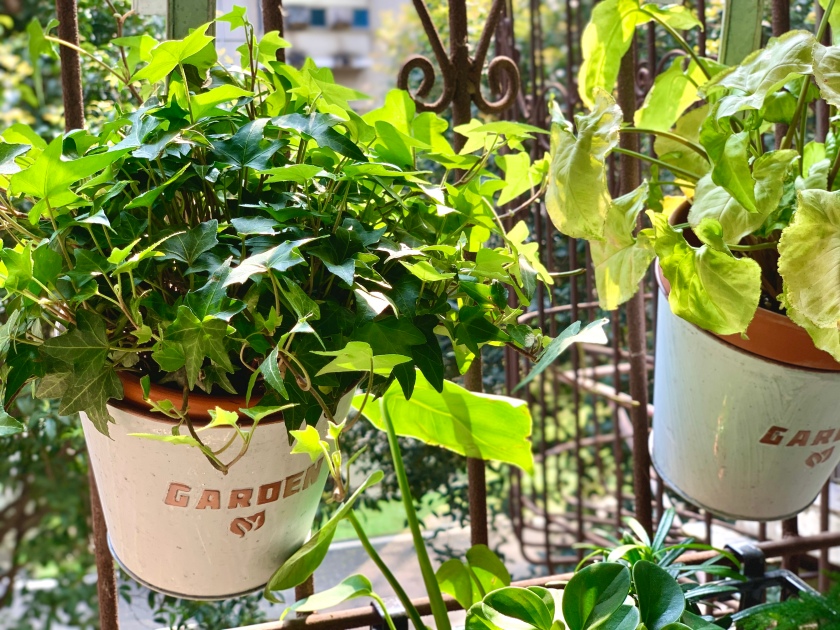By Lou Hsienhua
It is said that every dream has an origin. Yet, the origin of my dream to travel around the world, it appears, is hard to trace.
With ambiguities, I could remember what attracted my attention the most when I was a child: the beautiful landscape pictures. At that moment, the existence of picturesque natural wonders reminded me of how beautiful our ‘life journeys’ could be as long as we insist our wish to travel be fulfilled.
In the early 2000s, there was an inclination inside the circle of geographical magazines to narrow their focus on places that were topographically diverse and culturally central, such as big urban centers whose past was deemed essential to the formation of our specific cultural identity—like Beijing, Shanghai in China, Toronto, Quito, New York, Paris, London, Moscow etc. around the world—and mountainous areas in southwestern China.
Plains were not getting much attention from the geographical magazines or landscape photographers. Perhaps its geographical blandness is a put-off for an industry driven by ‘visual freshness’. And it turned out because my hometown locates in central China’s Jianghan Plain, I could hardly find any representative presence of it on media, geography documentaries, or geographic books. It’s the flatness of it that shaped the way I see the outside of it.
Faraway lands seem to be a metaphor for something we yearn for. Its unreachability represents the most prominent aspect of desiring passions
I saw, in pictures, the Loess Plateau in the north where lands were overlain by a mantle of yellowish alluvium. And where the mountains were bare, forestless, and standing like an old man with a face wrinkled, weathered but still looking unshakably strong.
In The Bloodstain of Mountain Changbai, Xiao Hong, a Chinese writer born in the northeastern province of Heilongjiang in 1911, wrote: the landscape of China’s north, comparing to that of the south where moistness and serenity defined its feature, is sublimely majestic and vigorous, which is second to none.
I have never been to China’s northeast.
I have only been to China’s north in Beijing several years ago midway in summer. That summer, in my memory, was characterized by aridness, and extreme heat. Though it’s common in the south to expect extreme heat in hot summer days, it’s considered less common to experience that kind of climate aridness in southerners’ living memories about summer.

Onscreen, there were forest-covered mountains that seemed like a passing fancy for a ten-year old growing up in small villages. I knew, from an early time of my life, it would only be a matter of time before what I thought was normal gradually became what I could hardly afford to lose, and forget. As I stood gazing up aimlessly around the stary sky, I started to miss the things I could hardly afford to lose but that had faded away anyway. Things like buffaloes roaming around the wasted grassland near my childhood residence in the countryside, and blooming colza flowers yellowing the entire field. Something I could not afford to lose.
All four seasons are leaving me now.
What I could grasp were only these autumn winds in which
Falling leaves blew along the streets outside of the theatre.
You greeted me with a smile almost unnoticeable, gradually away.
’twas about five years past.
With tears welling up,
I recognize what hasn’t come would never come.
Walk along the beach in the evenings.
Inside windows that open and shut,
Candlelights are what appears the most consolatory for those with a broken heart.
Fishing lamps, where have they gone?
All four seasons are like waves both serene and rippling.
Welcoming autumn is for years what I wish to do.
Let the chrysanthemum bloom in fatigue, like a sigh.
Let it bloom like me unable to meet the one I love.
Spreading out the whitish notepaper,
I write down those summer days,
During which we walked together along the beach.
Welcoming Autumn by Lao Mu
Translated from Chinese by Lou Hsienhua
“It’s easy to see the beginnings of things, and harder to see the ends.” Joan Didion wrote in Goodby to All That. At that time, I could almost recollect, though with a little uncertainty that makes me less certain about the accuracy of the words I wrote, when the city of Qianjiang, in south Hubei, began for me but I could hardly figure out at which moment it suspended. Maybe it never ended. Maybe I could go back where it was again in my memory as long as I felt I was as expectant as I once was.

But the moment of change certainly starts when I reflected on the question of belonging. The problem of rootedness. There is always a pause when I was asked where is worth visiting in the city of Qianjiang. It’s hard to see the standards by which a place is considered worth visiting. For Chinese bibliophiles, a museum dedicated for the remembrance of Cao Yu, a Chinese playwright whose ancestral home is in Qianjiang may be considered a must-go. But for others whose personal interests vary, it’s harder to tell by which standard, a place is for them. Overall, it’s a small city not dissimilar to any other same-sized ones.
What do we mean when we express our love for travelling? Travelling is life, it is said. It’s like an ideal used by those who wish to metaphorize their desire for a fulfilling life. This metaphor is so widely accepted that it is almost our second nature to liken the places we haven’t been to anything desirable, majestically serene, or adventurous as if anything familiar to us is tediously uninteresting. Life, some may argue, is about pursuing things, instead of holding them. This, it is only too common to lose our interest to something when it’s gained, or obtained. We have goals. But in the end, we could hardly lay a finger upon the exact point that our goals are for.
It’s not uncommon for some writers to appear a bit superstitious. Life is one of the most mythicized things that we feel no control of. Better believe in something. And for some writers, this believing in something turned out to be youth. If life is a floral plant, youth is certainly its blossom. And in the end, where we’d been in the early years of our life gradually becomes the memento of our youth. In Ernest Hemingway’s later years, he was trying to finish his ‘Paris stuff”, a recollection of his youth time spent in Paris that was later, posthumously, published and titled A Moveable Feast.
Perhaps in the end, the only way to reconnect to our youth, besides photographs, could truly be the places where our younger selves stayed. As Hemingway put it, “there were many words that you could not stand to hear and finally only the names of places had dignity.”
Decades ago when I, for the first time in my life, headed for the city of Wuhan to start my college years, life after seventeen still seems mixed with complex feelings of bittersweetness and expectations of a better future. The lastingness of youth, we truly believed, seemed to be something we took for granted. My grandparents reminded me to get thicker beddings and quilts lest I get cold. Life outside home, at that time, seemed deeply unsatisfying, yet, it provided a priceless freedom whose value we took an awfully long time to realize. At first, it’s the kind of freedom that requires no other additional efforts to earn. Yet when we grew up, it gives no chance for us to regain it. It is the fleetingness of youth that is what we didn’t see. By the time we realise the value of it, it’s gone.
Life at that time seemed so beautifully innocent that even the most unendurable disturbances such as chaotic verbal conflictions witnessed on bus could be rendered as the bassline of a grand symphony of life.
When we talk about cities, what do we exactly mean? Do we, for example, mean we feel the time we spent there or the atmosphere that specific city posed bears a special meaning to us? Perhaps. More often than not, when I think of the city of Qianjiang, I start to recollect my teen years during which I learned various ‘life lessons’ others considered important by certain standards. When I think of the city of Wuhan, I, almost immediately, remember my early twenties during which I tried to explore the options for me to live my life in a fulfilling way.
Many years ago when I was there in Wuhan, it was largely under upgrade mode—a scheme to gentrify its old boroughs and blocks considered, by the officials, dysfunctional and cut off. I was, at that time, living in a rented apartment near the Nanhu region of the city, trying to build a life based on my own ideals, hopeful of freeing myself from the intellectual restrictions set by capitalistically caused financial difficulties by thinking only about the ‘fact’ that anyone alive should be free of defining what to love, what to value.
The city of Wuhan at that period was still under ‘infrastructure transformation’. Almost every street where I walked across in the city, as my memory has it, was gradually becoming unrecognisable in a matter of days. A speed faster than my ability to perceive it. And then, every time it rained, the roads near the lake-bound regions of the city would, usually, turned into muddy riverbeds, making it hard for pedestrians to walk back home, or go working. In the night, it was most expected that piercing noises of tracks carrying sands to disturb your sleep.
Looking back at the city of Wuhan across whose streets I roamed, taking photographs several years ago, I assumed that maybe every city under ‘upgrading scheme’ might look like this, messy and disorderly. But such disturbances like noises in the night were not considered a nausea during my stay at the city in my life after 18 because the power of beauty and self-regarding—all characteristic of youth—is so enticing and great that no thing—including those disturbances— seemed able to suppress it.


